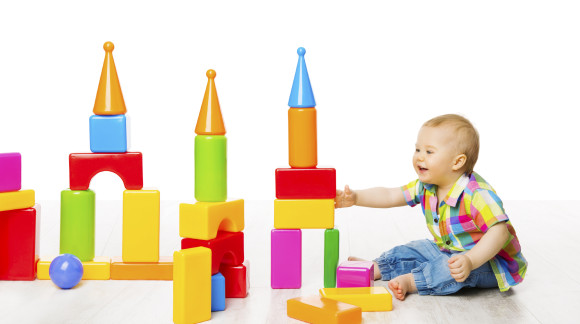Early Childhood Education, from 0 to 6 – What is Really Important?

Early Education – Yay, or Nay?
The general population falls into two camps when discussing the importance of early childhood education. Some believe the bulk of learning happens in early childhood development years (1 to 3 years old), and the other half argues that formal education should start at age five or six in kindergarten.
The argument to enroll your child in pre-kindergarten is usually maintained by parents who believe their child develops fundamental skills before the age of four. Research shows that between the ages of one and three the brain undergoes rapid development. It is hard to argue that the change from a one-year-old to a three-year-old is not dramatic.
In 36 months a little human learns to crawl and walk, talk in full sentences, use the toilet and express emotions. In addition, their understanding of the world becomes clearer as they develop and begin to recognize and define relationships with their mothers, fathers, siblings and grandparents.
Determining if Pre-Kindergarten is Critical
The Centers for Disease Control and Prevention outlines the developmental milestones you should look for in your child by certain ages. For many parents the decision to enroll their child in pre-kindergarten is simply for the additional caretaker help. While your son or daughter is at school you are free to tackle your to-do list, which can be particularly helpful to working parents and parents raising multiple children.
If you are on the fence about the benefits of pre-kindergarten, the lists from the Center of Disease Control can help you gauge if your child is progressing developmentally at the recommended rate. If you’re concerned your child is not hitting the recommended milestones, you may want to consider alternative education.
What Does the Research Say?
Ten states – Alabama, Arkansas, Delaware, Louisiana, Maryland, Mississippi, New Mexico, North Carolina, South Carolina, West Virginia – and the District of Columbia require districts to provide full-day, publicly funded kindergarten education. The research from these programs generally shows a correlation between education at an early age and success later in life, including higher paying jobs, decreased likelihood of committing a crime and stronger academic scores.
Without early childhood education, at-risk children are 25 percent more likely to drop out of school, 60 percent more likely to not attend college and 70 percent more likely to be arrested for a violent crime. Nobel-Prize-winning economist James Heckman estimates that every dollar spent on early childhood education returns 10 cents annually during the life of a child.
The Center for Public Education reports that children in state pre-kindergarten posted vocabulary scores that were 31 percent higher and math gains that were 44 percent higher than those of non-participants.
Only You Know What Is Best
As a parent you have the final say in what is best for your son or daughter. By comparing your child’s development with the development of other children in his or her age bracket you can begin to analyze if your child is progressing at the same or higher level and determine if your child would benefit from early childhood education.
Additional Resources
- Early Literacy, by Zerotothree.org
- What is so important about Early Childhood Education, by Educationcorner.com
- Child Development and Early Learning, by Factsforlifeglobal.org
- What is My Newborn Learning, by Kidshealth.org
- School Readiness Interactive Birth to 3, by Zerotothree.org
- Children and Brain Development: What We Know About How Children Learn, by Judith Graham
- The Importance of Play in Early Childhood Development, by Jona K. Anderson-McNamee and Sandra J. Bailey
- Quality Early Education and Child Care from Birth to Kindergarten, by Pediatrics.aappublications.org
- Motivating Learning in Young Children, by Nasponline.org
- How Children Learn to Write, by Education.com
- Nurturing Children: Why “Early Learning” doesn’t help, by Andrea Mrozek
- Early Childhood Education for all, by Web.edu
- Costs per Child for Early Childhood Education and Care, by Welfareacademy.org
Videos
- Importance of Early Childhood Education, by Valleynewsline
- What Children Learn in Pre-K, by Pre-K Now
- The Science of Early Childhood Development, by Developingchild.harvard.edu
- Early Childhood Program Effectiveness, by Developingchild.harvard.edu
- Early Childhood Education and Spending Cuts, by Arne Duncan and Kathleen Sebelius on c-span.org
Education
- Global Education Program, 2018, by Education.qld.gov.au
- Using Early Childhood Research, by naeyc.org
- Engaging Educational Programs for Early Childhood, by Rourke Educational Media
Books
- Early Childhood Education: Becoming a Professional, by Kimberly A. Gordon Biddle
- The Complete Resource Book for Preschoolers: An Early Childhood Curriculum, by Pam Schiller and Kay Hastings
- The Giant Encyclopedia of Lesson Plans for Children 3 to 6, by Kathy Charner
- High-Tech Tots, by Ilene R. Berson and Michael J. Berson
- Studying Teachers in Early Childhood Settings, by Bernard Spodek and Olivia Saracho
Apps
- Early Childhood Education, by The Center for Early Childhood Education, available on iTunes for free
